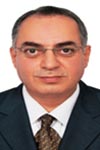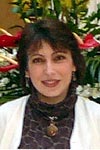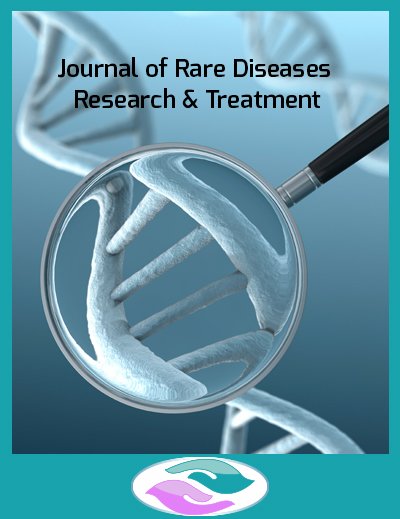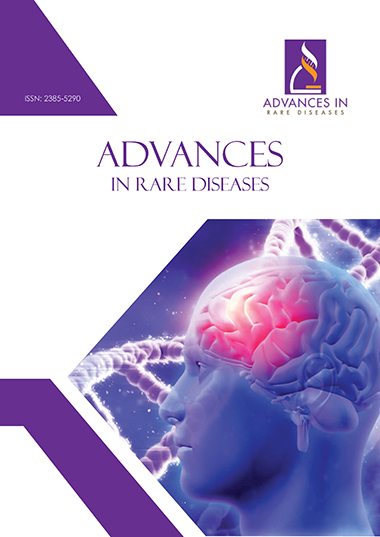Theme:
Renowned Speakers
Rare Diseases 2021
About the conference:
We invites all the participants from all across the globe to attend “5th Annual Summit on Rare Diseases and Orphan Drugs”, on March 18-19, 2021 webinar which includes prompt keynote presentations, poster presentations, and oral talks.
"Orphan drugs" are medicinal products intended for diagnosis, prevention or treatment of life-threatening or debilitating rare diseases. They are "orphans" because the pharmaceutical industry has little interest under normal market conditions in developing and marketing drugs intended for only a small number of patients suffering from very rare conditions. An orphan drug is a medicinal product developed for the treatment of a rare disease. A rare disease is defined as a condition that affects a very small percentage of the population, and is fatal or severely debilitating. For instance, in Europe, it is defined for less than 1 patient per 2,000 inhabitants; in the USA, it is no more than 200,000. There are over 7,000 known rare diseases, which means that several million people are affected all over the world – over 25 million in Europe alone. Today, treatment exists for only 200 to 300 diseases. Rare diseases are often genetic, meaning that newborn babies, children, and young adults are often affected. Physicians may never see a patient with a rare disease.
This conference plays a Global platform for biomedical companies, start-ups, clinical research divisions, professionals, specialists, consultants, doctors, scholars and students to frame new relationship and strengthen the Knowledge. This is a great opportunity for all the delegates from Universities and Institutes to interact with the top grade world class Scientists. The particular participants can confirm their participation through Registrations. To explore More Regarding the Recent Research in Rare Diseases its application attends Rare Diseases 2021.
About Organizers:
We are one of the leading Open Access publishers and organizers of international scientific conferences and events every year across USA, Europe & Asia. Events with over 600+ Conferences, 1200+ Symposiums and 1200+ Workshops on Medical, Pharma, Engineering, Science, Technology and Business with 700+ peer-reviewed open access journals in basic science, health, and technology.
Scientific Sessions : Rare Diseases, Orphan Drugs, Rare Syndrome of Covid-19, Mystery Diagnosis of Rare Diseases, Rare Neurological Disorders, Rare Diseases and Immune System, Gene Therapy for Rare Diseases, Challenges of Living with Rare Diseases, Rare Haematology Diseases, Rare Obesity and Metabolic Disorders, Rare Skin Diseases, Rare Pulmonary Diseases, Viral Infectious Diseases, Clinical Research on Orphan Drugs, Rare Paediatric Diseases
Target Audience:
Eminent personalities, Directors, CEO, President, Vice-president, Research scientists, Organizations, Post-docs, Associations heads and Professors, Rare Diseases laboratory heads, Orphan Drug Researchers, Students and other affiliates related to the area of Rare Diseases and Orphan Drugs.
We welcome everyone around the globe to attend the “5th Annual Summit on Rare Diseases and Orphan Drugs” during March 18-19, 2021,Webinar, which incorporates incite keynote introductions, Workshops, Poster introductions ,Exhibitions and Oral talks. The gathering chiefly concentrates on theme “Fighting Rare Diseases with Innovative Techniques”.
Track 1: Rare Diseases:
Rare diseases are characterized by a good diversity of symptoms and signs that change not only from disease to disease but also from patient to patient affected by an equivalent disease. Due to the low prevalence of every disease, medical expertise is rare, knaowledge is scarce, care offerings inadequate and research limited. Despite their great overall number, rare disease patients are the orphans of health systems, often denied diagnosis, treatment, and therefore the benefits of research. Relatively common symptoms can hide underlying rare diseases resulting in misdiagnosis and delaying treatment. Typically disabling, the quality of life of a person living with a rare disease is affected by the lack or loss of autonomy due to the chronic, progressive, degenerative, and frequently life-threatening aspects of the disease.
Related Associations of Rare Diseases Research:
Alzheimer's disease Organizations, Ann & Robert H. Lurie Children’s Hospital, Birmingham children’s Hospital, Boston Children’s Hospital, Canadian Organization for Rare Diseases, Chicago Rare Disease Foundation, Children’s hospital of Pittsburgh, National Alliances for Rare Diseases, National Institute of Health (NIH), National Organization for Rare Diseases, NDC Medicine, Rare Diseases Patient Association Funding, Rare Diseases South Africa, Rare Diseases Translational Research Collaboration.
Track 2: Orphan Drugs:
The alleged 'vagrant medications' are planned to treat illnesses so uncommon that supporters are hesitant to create them under normal promoting conditions. The measure from the advancement of a replacement iota to its advertising is long (10 years in normal), costly (a huge number of euros) and extremely questionable (among ten particles tried, just one may have a remedial impact). Building up a medication expected to treat an uncommon illness doesn't permit the recuperation of the capital contributed for its research. Orphan medications could likewise be characterized as: Medications that aren't created by the drug business for financial reasons yet which answer general wellbeing need. Actually, the indications of a drug can also be considered as ' orphan ' since a substance could also be utilized in the treatment of a frequent disease but might not are developed for an additional , more rare indication.
Related Associations of Rare Diseases Research:
Alzheimer's disease Organizations, Ann & Robert H. Lurie Children’s Hospital, Birmingham children’s Hospital, Boston Children’s Hospital, Canadian Organization for Rare Diseases, Chicago Rare Disease Foundation, Children’s hospital of Pittsburgh, National Alliances for Rare Diseases, National Institute of Health (NIH), National Organization for Rare Diseases, NDC Medicine, Rare Diseases Patient Association Funding, Rare Diseases South Africa, Rare Diseases Translational Research Collaboration.
Track 3: Rare Syndrome in Covid-19:
Multisystem provocative disorder (MIS-C) might be an uncommon yet extreme condition that imparts indications to poisonous stun disorder and Kawasaki illness , including fever, rashes, swollen organs and, in serious cases, heart irritation. it's been reported in children and adolescent patients about two to four weeks after the onset of COVID-19.With rising COVID-19 cases, there might be an increased occurrence of MIS-C, in any case, this won't be clear quickly because of the postponement being developed of side effects, said the report's creators, including those from the CDC's COVID-19 reaction group. Among the MIS-C cases, all patients tried positive for COVID-19. Children seem to possess mostly been spared from serious COVID-19 complications. But now, new reports suggest that a rare and potentially fatal disease linked to the novel coronavirus is afflicting a little number of youngsters .
Related Associations of Rare Diseases Research:
Alzheimer's disease Organizations, Ann & Robert H. Lurie Children’s Hospital, Birmingham children’s Hospital, Boston Children’s Hospital, Canadian Organization for Rare Diseases, Chicago Rare Disease Foundation, Children’s hospital of Pittsburgh, National Alliances for Rare Diseases, National Institute of Health (NIH), National Organization for Rare Diseases, NDC Medicine, Rare Diseases Patient Association Funding, Rare Diseases South Africa, Rare Diseases Translational Research Collaboration.
Track 4: Mystery Diagnosis of Rare Diseases:
An undiagnosed disease is one or more medical problems that doctors haven’t been ready to identify a cause for. Trying to hone in on a diagnosis for a rare condition can involve many things: thorough evaluation, genetic and other testing, imaging, medical history review, and in-person interviews and physical examinations, also as evaluations of family who share similar symptoms. “The Undiagnosed Disease Network features a whole program of model organisms, so if we discover a genetic change in someone we expect is related to the condition, we've resources to place that change during a model to ascertain if it actually changes the system therein organism.
Related Associations of Rare Diseases Research:
Alzheimer's disease Organizations, Ann & Robert H. Lurie Children’s Hospital, Birmingham children’s Hospital, Boston Children’s Hospital, Canadian Organization for Rare Diseases, Chicago Rare Disease Foundation, Children’s hospital of Pittsburgh, National Alliances for Rare Diseases, National Institute of Health (NIH), National Organization for Rare Diseases, NDC Medicine, Rare Diseases Patient Association Funding, Rare Diseases South Africa, Rare Diseases Translational Research Collaboration.
Track 5: Rare Neurological Disorders:
A nervous disorder is defined as any disorder of the body systema nervosum. Basic, biochemical or electrical variations from the norm inside the mind, medulla spinalis or different nerves may result during a scope of manifestations. Tests of side effects incorporate loss of motion, muscle shortcoming, helpless coordination, and loss of sensation, seizures, disarray, torment and modified degrees of awareness. the exact reasons for neurological issues change, however can incorporate hereditary issues, innate irregularities or issues, contaminations, way of life or ecological medical issues including ailing health, and cerebrum injury, medulla spinalis injury or nerve injury. There are many perceived neurological issues, some moderately normal, yet numerous uncommon. They’ll be assessed by neurological examination, and studied and treated within the specialties of neurology and clinical neuropsychology. Mental disorders, on the opposite hand, are "psychiatric illnesses" or diseases which appear primarily as abnormalities of thought, feeling or behavior, producing either distress or impairment of function.
- Adenosine monophosphate deaminase 1 deficiency
- Adenylosuccinase deficiency
- Adie syndrome
- Adrenomyeloneuropathy
- Adult polyglucosan body disease
- Adult-onset nemaline myopathy
- Advanced sleep phase syndrome, familial
- Agnosia
Related Associations of Rare Diseases Research:
Alzheimer's disease Organizations, Ann & Robert H. Lurie Children’s Hospital, Birmingham children’s Hospital, Boston Children’s Hospital, Canadian Organization for Rare Diseases, Chicago Rare Disease Foundation, Children’s hospital of Pittsburgh, National Alliances for Rare Diseases, National Institute of Health (NIH), National Organization for Rare Diseases, NDC Medicine, Rare Diseases Patient Association Funding, Rare Diseases South Africa, Rare Diseases Translational Research Collaboration.
Track 6: Rare Diseases and Immune System:
Uncommon auto inflammatory illnesses are driving another comprehension of immune system issues and the fiery cycle when all is said in done. Auto inflammatory illnesses, for example, cryopyrin related occasional condition (CAPS) and TNF receptor-related intermittent disorder (TRAPS) are sicknesses of the natural invulnerable framework. They're achieved by innate changes and can be difficult to examine, because of their signs - fever, rashes and achiness - are so ordinary, especially in the pediatric people. Immune system issues, on the other hand, are brought about by the glitch of the versatile safe framework. Be that as it may, immune system sicknesses ordinarily trigger intrinsic invulnerable reactions as well.
- Combined Immune Deficiency (CID) Syndromes
- Combined Variable Immune Deficiency (CVID) Syndrome
- Congenital Corneal Opacity (Peters Anomaly and Sclerocornea)
- Crigler-Najjar syndrome
- Fabry Disease
- Fatty Acid Oxidation Deficiencies
- Gaucher Disease
Related Associations of Rare Diseases Research:
Alzheimer's disease Organizations, Ann & Robert H. Lurie Children’s Hospital, Birmingham children’s Hospital, Boston Children’s Hospital, Canadian Organization for Rare Diseases, Chicago Rare Disease Foundation, Children’s hospital of Pittsburgh, National Alliances for Rare Diseases, National Institute of Health (NIH), National Organization for Rare Diseases, NDC Medicine, Rare Diseases Patient Association Funding, Rare Diseases South Africa, Rare Diseases Translational Research Collaboration.
Track 7: Gene Therapy for Rare Diseases:
Gene therapy may be a logical thanks to treat rare genetic diseases; cure one gene defect by introducing a 'correct' gene. The main quality treatment preliminaries were led utilizing patients with uncommon monogenetic messes, yet these are presently dwarfed by the clinical testing of quality therapeutics for more normal conditions, for example, malignancy, AIDS and cardiovascular sickness. This is partly thanks to a failure to realize long-term organic phenomenon with early vector systems, a critical requirement for correcting many inborn genetic defects. Now, with the arrival of adeno-associated viral (AAV) and lentiviral vectors, which demonstrate persistent organic phenomenon in animal studies, this technological barrier may are overcome. These vectors are anticipated to make the idea of the many gene-therapy protocols for inherited genetic diseases.
Related Associations of Rare Diseases Research:
Alzheimer's disease Organizations, Ann & Robert H. Lurie Children’s Hospital, Birmingham children’s Hospital, Boston Children’s Hospital, Canadian Organization for Rare Diseases, Chicago Rare Disease Foundation, Children’s hospital of Pittsburgh, National Alliances for Rare Diseases, National Institute of Health (NIH), National Organization for Rare Diseases, NDC Medicine, Rare Diseases Patient Association Funding, Rare Diseases South Africa, Rare Diseases Translational Research Collaboration.
Track 8: Challenges of Living with Rare Diseases:
Rare disease patients are treated by physicians who are taught in school of medicine about diseases that they're likely to encounter in their practices. In other words, not rare or relatively unprecedented conditions. As a result, many rare diseases just aren’t taught in school of medicine. Understandable, since there are quite 7,000 rare diseases. In contrast, one in every 5,000 people are born with Ehlers-Danlos Syndrome, a gaggle of inherited disorders marked by extremely loose joints, very stretchy skin that bruises easily, and easily damaged blood vessels. Patients regularly lose important years prior to being appropriately analysed and treated.
Related Associations of Rare Diseases Research:
Alzheimer's disease Organizations, Ann & Robert H. Lurie Children’s Hospital, Birmingham children’s Hospital, Boston Children’s Hospital, Canadian Organization for Rare Diseases, Chicago Rare Disease Foundation, Children’s hospital of Pittsburgh, National Alliances for Rare Diseases, National Institute of Health (NIH), National Organization for Rare Diseases, NDC Medicine, Rare Diseases Patient Association Funding, Rare Diseases South Africa, Rare Diseases Translational Research Collaboration.
Track 9: Rare Haematology Diseases:
Hematologic diseases, disorders of the blood and blood-forming organs, afflict many Americans. In addition to blood corpuscle cancers, hematologic diseases include rare genetic disorders, anaemia, conditions associated with HIV, red blood cell disease, and complications from chemotherapy or transfusions.NIDDK-supported haematology researchers work in many various areas, from developing drugs to support people that receive multiple blood transfusions, to laboratory research to raised understand the traditional and abnormal function of blood cells. The NIDDK also supports research within the biology of adult blood stem cells, which are needed for bone marrow transplants and should have broader application in gene therapy research.
- Acquired hemophilia
- Acquired hemophilia A
- Acquired pure red cell aplasia
- Acquired Von Willebrand syndrome
- Acute erythroid leukemia
- Acute graft versus host disease
- Acute monoblastic leukemia
Related Associations of Rare Diseases Research:
Alzheimer's disease Organizations, Ann & Robert H. Lurie Children’s Hospital, Birmingham children’s Hospital, Boston Children’s Hospital, Canadian Organization for Rare Diseases, Chicago Rare Disease Foundation, Children’s hospital of Pittsburgh, National Alliances for Rare Diseases, National Institute of Health (NIH), National Organization for Rare Diseases, NDC Medicine, Rare Diseases Patient Association Funding, Rare Diseases South Africa, Rare Diseases Translational Research Collaboration.
Track 10: Rare Obesity and Metabolic Disorders:
Severe obesity starting early in life is a hallmark of rare genetic disorders of obesity. A hereditary conclusion can ease sentiments of blame or fault and reduce social disgrace for adolescents with these issues and their families. Obesity is a complex and multifactorial disease involving interactions between behavioral, environmental, genetic and metabolic factors that contribute to increased risk for comorbidities and mortality. Severe obesity, defined as BMI at or above 120% of the sex-specific 95th percentile in children and adolescents or BMI at least 40 kg/m2 in adults, affects about 6% and 8% of youths and adults in the United States, respectively. Separating uncommon hereditary problems of corpulence, including BBS and Alström condition from nongenetic weight is basic for understanding heftiness pathogenesis and the headway of focused treatments for people with uncommon hereditary issues of stoutness.
Related Associations of Rare Diseases Research:
Alzheimer's disease Organizations, Ann & Robert H. Lurie Children’s Hospital, Birmingham children’s Hospital, Boston Children’s Hospital, Canadian Organization for Rare Diseases, Chicago Rare Disease Foundation, Children’s hospital of Pittsburgh, National Alliances for Rare Diseases, National Institute of Health (NIH), National Organization for Rare Diseases, NDC Medicine, Rare Diseases Patient Association Funding, Rare Diseases South Africa, Rare Diseases Translational Research Collaboration.
The worldwide vagrant medication market is famously serious and divided in nature. There are a few parts on the lookout and a pool of new players is required to enter the serious worldwide vagrant medication market, expresses a forthcoming Transparency Market Research (TMR) report. The noticeable parts in the worldwide vagrant medication market incorporate GlaxoSmithKline plc, Johnson and Johnson. Pfizer Inc., Novartis AG, and Celgene Corporation. These leading players are that specialize in gaining a stronger foothold by investing in research and development within the drug development area. The small and medium sized players depend upon support and funding extended by governments. The new entrants would need to start from scratch that's from development of basic drugs to more complex drugs like orphan drugs.
Increasing importance being given to research and development activities is projected to swell the worldwide orphan drug market over the forecast period. The worldwide vagrant medication market is extended to stretch out at a CAGR of 12.10% during the estimate time frame 2017 to 2025. The global orphan drug market is predicted to realize a net valuation of US$318.5bn by the top of 2025.
Our Conferences had successfully hosted the "6th International Conference on Rare Diseases and Orphan Drug" during June 17-18, 2019 at Dubai, UAE on the theme of Challenges & opportunities in elimination of Rare diseases & orphan drug development.
The analysis of the conference evaluation forms shows that the event was very well received as a valuable and stimulating. The majority of delegates who completed the conference evaluation forms rated the conference as a whole as “excellent” or “very good”. The conference was palmy in transfer along famous speakers from varied supposed organizations and their preponderant talks enlightened the gathering.
The pragmatic meet organized by our management received a generous response from the domain, gifted Keynote Speakers, Speakers, Young Researchers, and Students & Business Delegates who attended from different parts of the world created their valuable contribution to form it as a successful event. The conference was marked with the presence of eminent Speakers, Young Researchers; Students & Business Delegates driving the congress into the way of accomplishment with animating keynote appears.
The conference was initiated with a warm welcome note from our Honourable Guests & followed by Keynote sessions. We would like to convey the great appreciation to Dr. Ayman Noreddin from University of Sharjah, UAE & Dr. Wafaa Ahmed Zahran from Menoufia University, Egypt.We are very overwhelmed by their presence and generous response.
Rare Diseases Meet 2019 Organizing Committee extends its gratitude and congratulates the honourable moderators of the conference Dr. Nilanjana Ghosh, North Bengal Medical College, India and Dr. Ruchika Butola, Rajiv Gandhi Super Speciality Hospital, India who contributed plenty for the graceful functioning of this event.
The is designed with the keynote sessions, session lectures, and poster presentations, presentations from the young researchers, Panel Discussions, and the B2B meetings with world-renowned speakers from the stream of immunology. It provides the best platform for the researchers to the researchers all over the globe to introduce themselves to the innovative world with their unique research. We are happy to announce a “5th Annual Summit on Rare Diseases and Orphan Drugs”.
Conference Highlights
- Rare Diseases
- Orphan Drugs
- Rare Syndrome in Covid-19
- Mystery Diagnosis of Rare Diseases
- Rare Neurological Disorders
- Rare Diseases and Immune System
- Gene Therapy for Rare Diseases
- Challenges of Living with Rare Diseases
- Rare Haematology Diseases
- Rare Obesity and Metabolic Disorders
- Rare Skin Diseases
- Rare Pulmonary Diseases
- Viral Infectious Diseases
- Clinical Research on Orphan Drugs
- Rare Pediatrics Diseases
To share your views and research, please click here to register for the Conference.
To Collaborate Scientific Professionals around the World
| Conference Date | March 18-19, 2021 | ||
| Sponsors & Exhibitors |
|
||
| Speaker Opportunity Closed | |||
| Poster Opportunity Closed | Click Here to View | ||
Useful Links
Special Issues
All accepted abstracts will be published in respective Our International Journals.
Abstracts will be provided with Digital Object Identifier by









